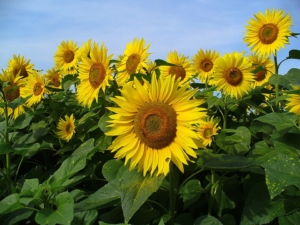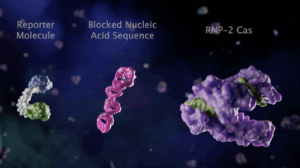
EU parliament backs deregulation of New Genome Techniques
After two "Yes"-votes in the European Parliament's AGRI and ENVI committees, MEPs confirmed the European Commissions draft Regulation on New Genomic Technologies in plant breeding.
With the MEPs’ approval of the amendments to the European Commission’s draft legislation, the way is now clear for a regulation that distinguishes between NGT breeds that are equivalent to conventional breeds and those that are authorised and released under the strict rules that apply to GMOs. By 307 votes to 263, with 41 abstentions, MEPs supported rules that – in contrast to the Commissions draft Regulation – puts a full ban on patents for NGT plants, that forsees manadatory labelling for both, NGT1 and NGT2 plant-derived products and that prohibits use of NGT1 seeds in organic farming.
According to Jessica Polfjärd (EPP, SE), rapporteur of the ENVI committee of the EP, which signalled its support for the regulation with some amendments after the AGRI committee of the EP had previously given the green light to a modified regulation, NGTs are crucial to strengthen Europe’s food security and to green our agricultural production. The new rules will allow the development of improved plant varieties that can ensure higher yields, be climate resistant or which require fewer fertilisers and pesticides. I hope member states will soon adopt their position so we can adopt the new rules before the EuA qualified majority (15 member states representing 65% of the EU population) is now required in the EU Council of Ministers for the regulation to enter into force before European elections and give the farmers the tools they need for the green transition.”
However, hours after the vote in the European Parliament, EU member states failed for the second time to seal a deal as they remain divided over the patentability of NGTs, which is the decisive factor for Poland. According to reports, 16 EU states were in favour of the compromise. However, these represented less than 60% of the EU population instead of the required 65%. In December, the AGRI Council achieved the required approval from 15 member states. However, unlike the qualified majority required, these only represented 57.59% of the EU population instead of 65%. Poland, which represents 8.37% of the EU population, had signalled that it would drop its opposition if mandatory labelling and a patent ban on NGT1 plants – as envisaged in the Parliament’s proposal – were included in the regulation. However, the EU Commission was obviously unable to bring itself to do so.
Currently, all GMO plants are subject to the same strict rules that include obligatory safety assessment before field testing and market autorisation, traceability across the food chain by mandatory labelling. MEPs agree with the Commission’s proposal to have two different categories and two sets of rules for NGT plants. NGT plants considered equivalent to conventional plants (NGT 1 plants) would be exempted from the requirements of the GMO legislation, while other NGT plants (NGT 2 plants) would still have to follow stricter requirements.
For NGT 1 facilities, MEPs want to change the size and number of modifications required for an NGT facility to be considered equivalent to conventional facilities. To ensure transparency, MEPs agree that packages containing NGT products and seeds should be labelled and that a public online list of all NGT 1 plants should be established. While there would be no compulsory labelling for NGT 1 plants, MEPs want the Commission to report on how consumer and producer perceptions of the new techniques are evolving seven years after they come into force. MEPs also agree that all NGT plants should remain prohibited in organic production, as their compatibility needs further consideration.
Ban on all patents on NGT plants
Additionally, MEPs want a total ban on patents for all GM plants, plant material, parts thereof, genetic information and process traits they contain, to avoid legal uncertainty, increased costs and new dependencies for farmers and breeders. They also want a report by June 2025 on the impact of patents on breeders’ and farmers’ access to diverse plant reproductive material, and a legislative proposal to update EU rules on intellectual property rights accordingly.
According to EU news portal Euractiv, Pascal Canfin, chair of the European Parliament’s environment committee (ENVI), said that if EU countries do not reach an agreement in the next few days it is highly unlikely that the legislation will be approved before the EU elections in June. Observers assume that it will no longer be possible to finalise the trialogue by the end of February alone, as the trialogue talks can only begin once the Council of Ministers has given its approval. An agreement by the end of February is necessary in order to be able to adopt the NGT Regulation in the last session of the European Parliament in this legislative period.
The ball is now in the court of the Commission and the Council. NGOs and the Greens are protesting against the regulation, as they believe it jeopardises GMO-free organic farming and restricts consumers’ freedom of choice due to the equivalence criteria and the lack of a labelling obligation.


 H. Zell - wikipedia.org
H. Zell - wikipedia.org fvm.dk
fvm.dk VedaBio Inc
VedaBio Inc